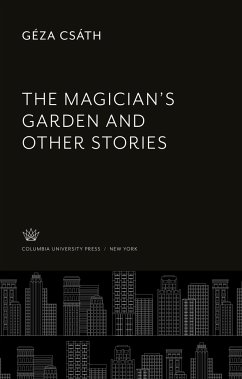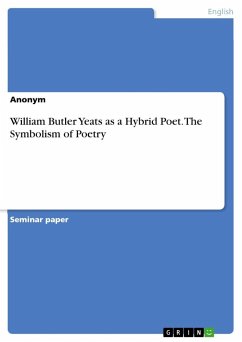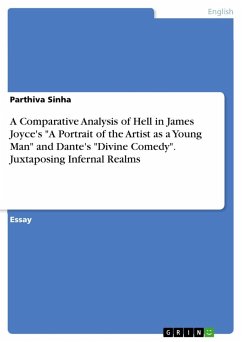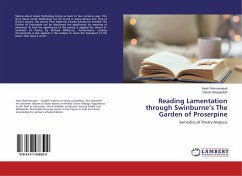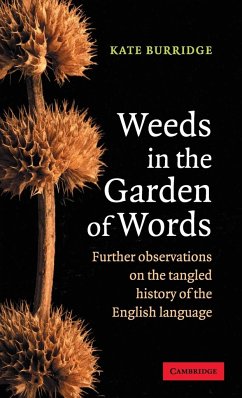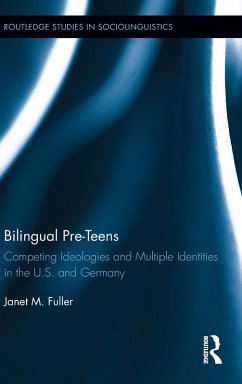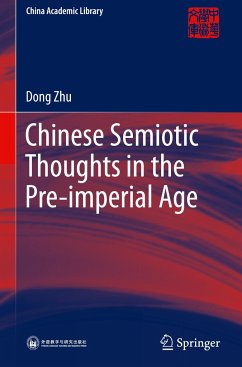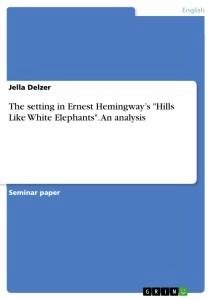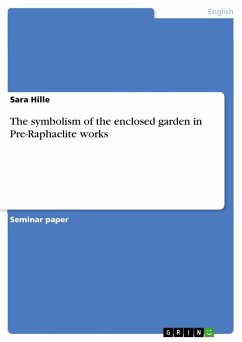
The symbolism of the enclosed garden in Pre-Raphaelite works

PAYBACK Punkte
0 °P sammeln!
Seminar paper from the year 2020 in the subject English Language and Literature Studies - Literature, grade: 1.7, Humboldt-University of Berlin, language: English, abstract: This paper is about the symbolism of the enclosed garden in Pre-Raphaelite works. When the Pre-Raphaelites first appeared in 1849, their shared concern was the opposition against the Royal Academy of Arts and their promotion of idealized subjects and conventional forms of beauty based on Renaissance artists such as Raphael and Michelangelo. They aimed to depict nature accurately, which not only meant a break with the aesth...
Seminar paper from the year 2020 in the subject English Language and Literature Studies - Literature, grade: 1.7, Humboldt-University of Berlin, language: English, abstract: This paper is about the symbolism of the enclosed garden in Pre-Raphaelite works. When the Pre-Raphaelites first appeared in 1849, their shared concern was the opposition against the Royal Academy of Arts and their promotion of idealized subjects and conventional forms of beauty based on Renaissance artists such as Raphael and Michelangelo. They aimed to depict nature accurately, which not only meant a break with the aesthetic conventions of their time, but also an unflinching visual scrutiny of social realities. Many of their paintings explored social topics in Victorian Britain, such as the social class system, poverty, working conditions, emigration, and women's role in society. The latter, in particular, was an essential theme in the works of the Pre-Raphaelites. While women were seen as second-class citizens in Victorian society, physically and intellectually subordinate to men, the Pre-Raphaelites put women and their experiences and struggles in the centre of their work. By using very often a medieval setting, the artists were able to highlight social issues such as adultery and prostitution, in which women mainly were disadvantaged, and underpin the notion that the present era was morally in decline. Pre-Raphaelite artists like William Holman Hunt and Christina Rossetti use this balance between the archaic and the modern to further draw attention to the situation of women in Victorian society in general. This paper examines how, alluding to the Garden of Eden, Pre-Raphaelite artists used the enclosed garden as a setting to criticize Victorian gender ideology and to create new representations of women. Using selected works of William Holman Hunt and Christina Rossetti, I deconstruct the concept of the "fallen woman" as a threat to society, while John Everett Millais' painting "Autumn Leaves" sheds light on the restrictive role of Victorian women in general. To conclude, the author shows how Christina Rossetti's poem "Shut out" help to shape new identities for Victorian women that go beyond the passive role of a victim in a patriarchal society. First, however, the following section shows how the Garden of Eden not only had a strong influence on the Pre-Raphaelites but also on the role of women and men in Victorian society.




